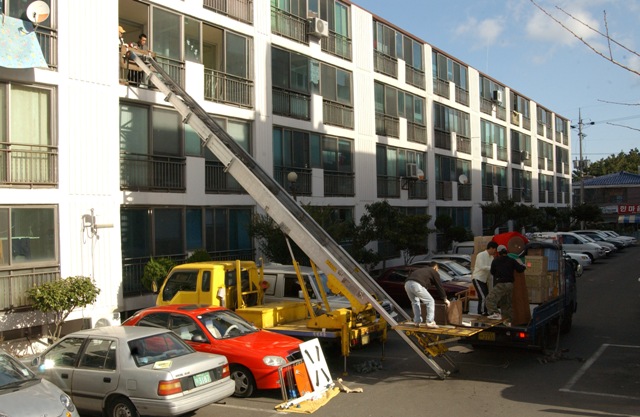With Jeju's sky-rocketing real estate prices, many people may now be looking into the island's rental market. Here, lawyer Moon Geon-sik is on hand to lend some legal advice on renting a property.
| |
 |
|
| ▲ Moon Geon-sik is a lawyer with an interest in foreigners' rights - Photo by Moon Geon-sik |
Hello everyone, I am Moon Geon-sik, a lawyer.
I grew up in Jeju but went to Seoul to attend university in 1991. After this, I stayed in Seoul to work but recently returned to Jeju in January this year.
Since I have been away, a lot has changed. The population of the island has grown vastly and as well as the many Koreans that have chosen to make Jeju their home, the foreign population has also greatly increased. I think that since I was away Jeju has become globalized.
In Seoul, I worked for the international committee of the Korean Bar Association. I worked with foreign lawyers and because of this I have a strong interest in the rights of foreigners living in Korea.
Since returning to Jeju, I have been trying to help foreigners here which is how I found out about The Jeju Weekly. I am looking forward to meeting the readers both on and offline.
In this article, I want to talk about the deposit needed for renting a house in Korea. Specifically, I will explain how to make sure you get your deposit back safely.
| |
 |
|
| ▲ People moving into a Jeju apartment Photo Courtesy Jeju City Hall |
When you come to Jeju, most people will look for a house to live in. If you can buy a house, that’s wonderful. However because of the soaring house prices in Jeju, most people will just rent a house.
There are three ways to rent a house. The first, called jeonse, is where the tenant deposits a large sum of money, usually around 70~80% of the property’s full value at the start of the contract. While this is a lot of money, at the end of the contract the tenant is able to get back 100% of their deposit.
The second way to rent a house is called wolse. This requires a relatively small amount of money for the deposit but the tenant must pay a higher monthly rent.
The final way to rent a house is called nyeonse. This is a custom specific to Jeju and is unique in that you have to pay 12 months rent at once.
Since a housing deposit is generally a huge amount of money, it is important to know the law about how to get your deposit back safely.
In Korea, there is the Housing Lease Protection Act which was made to protect tenants. It does this by making any agreements that go contrary to this act and unfavorable to the lessee ineffective.
There are also certain things you can do to decrease the risk of losing your deposit when renting a house.
First, when you make a contract for your rent, you need to check a certified copy of the real estate register. This allows you to see if the landlord correctly owns the house that you will rent and if they have the right to rent out the house.
Next, you have to check if there is a senior mortgage. At the end of your contract, if a landlord cannot return your deposit, you are able to do a court auction to get your deposit back. However sometimes if the senior mortgage has too high a mortgage bond, the auction doesn’t guarantee that you will fully get your deposit back.
Once you confirm the lease agreement, in order to move into the house you will need to visit the community service center for a moving-in report (for foreigners, a report on the alteration of residence) and secure a fixed date on the lease agreement.
When your contract ends, if you don’t get your deposit back, you don’t need to move out of the house. On the other hand, your contract is over so you may want to move despite not receiving your deposit. In this case, you can go to court to apply for a leasehold right registration order. After registering the leasehold rights on the real estate register you will be able to move.
Sometimes you may want to move before your contract ends. In this case, you can usually just find a new tenant to live in your place until the contract is over. (This is a realistic solution). When this happens, the new tenant will simply pay a deposit to the landlord and the landlord will give that deposit to the tenant who is moving out. (This is what I did when I came to Jeju from Seoul).
I hope this article has been helpful and I look forward to sharing some more legal tips in the next one!





















